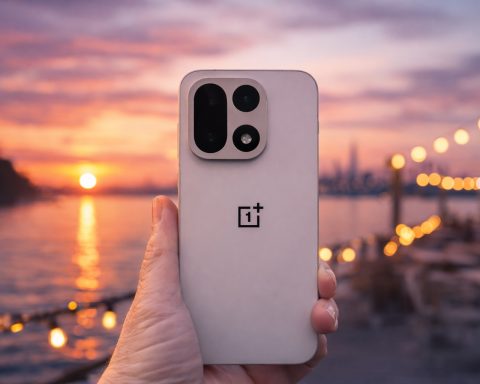- From Samsung Pay to All-in-One Wallet: Samsung’s mobile wallet started as the simple Samsung Pay app for payments 10 years ago, then merged with Samsung Pass (password manager) and evolved into Samsung Wallet, an all-in-one app for payments, IDs, keys, and more [1].
- Digital Keys and IDs Built-In: Samsung Wallet securely stores digital keys (for cars and smart locks) and official ID cards in one place [2]. In the U.S., for example, users in select states can add a mobile driver’s license to Samsung Wallet for use at TSA airport checkpoints [3].
- Major 2025 Upgrades (India): Samsung just rolled out a big Wallet update in India, adding UPI (Unified Payments Interface) integration, DigiLocker digital document storage, biometric authentication (fingerprint/face) for payments, and even digital car keys for select Mahindra electric SUVs [4] [5]. These features aim to make Samsung Wallet a “one-stop solution” replacing your physical wallet [6].
- “Galaxy Glue” Ecosystem Hub: Samsung Wallet has become the “glue” of the Galaxy device ecosystem, seamlessly working across Galaxy phones, watches, and tablets. It auto-fills passwords and payment info with biometrics, supports passkeys for logins, and even ties into smart home controls – linking your devices and daily life together [7] [8].
- Future Vision – Life Hub: Samsung executives say Wallet will evolve into a “Life Hub” powered by AI, expanding to cover even more of your daily needs. The company envisions Samsung Wallet as a “universal and secure gateway to your digital life” – managing payments, travel, identity, and assets in the Web3 era [9] [10].
Evolution: From Samsung Pay to a Universal Wallet
Samsung introduced its mobile payment service Samsung Pay in 2015, initially focusing on letting users tap their phones to pay in stores. Over the past decade, that simple pay app has transformed dramatically. In 2022, Samsung merged Samsung Pay with Samsung Pass (the company’s password manager) and rebranded it as Samsung Wallet, signaling its ambitions beyond payments [11]. Today’s Samsung Wallet is a versatile platform that organizes your credit/debit cards, digital IDs, loyalty passes, smart keys, and even passwords in one secure app [12]. As Samsung puts it, the Wallet app lets Galaxy users keep “digital keys, payment methods, identification cards and more in one secure application” [13]. This evolution means what started as a tap-to-pay convenience has grown into a full-fledged digital wallet hub that can potentially replace much of the contents of your physical wallet [14].
Notably, Samsung Wallet is fortified by Samsung Knox security (the company’s defense-grade security platform) and uses biometric authentication. This means users unlock the app or authorize payments with their fingerprint or face, adding strong protection while keeping things fast and convenient [15] [16]. In fact, Samsung Wallet’s integration of Samsung Pass features turns it into a secure password manager as well – it can autofill your app and website logins, addresses, and payment details using biometrics instead of you typing them in each time [17]. It even supports modern Passkeys for password-free logins, ensuring Samsung users stay on the cutting edge of authentication technology (a feature that rivals Google and Apple have also embraced).
Features and Functions: Payments, IDs, Keys, and More
Payments: At its core, Samsung Wallet is still a payment powerhouse. It stores your credit and debit cards for NFC Tap & Pay in stores (just like Google Wallet or Apple Pay), and it tokenizes card data for security. With recent updates, Samsung Wallet will also support online payments using those stored cards – letting users check out on websites or apps without re-entering card numbers, by securely autofilling the tokenized card info [18]. Samsung is even adding support for FOREX (foreign exchange) prepaid cards in Wallet for tap-to-pay, which is great for international travelers [19]. In regions like India, the app now integrates UPI payments, meaning you can link your bank account and send instant bank-to-bank payments or scan QR codes directly from Samsung Wallet [20]. This effectively makes Samsung Wallet a one-stop payments app: supporting traditional card payments, mobile banking transfers (UPI), and even transit or gift cards.
Digital IDs: Samsung Wallet is also tackling digital identification. It can store government-issued IDs and personal documents in digital form. For instance, Samsung recently integrated DigiLocker (India’s government-run digital document platform) into Wallet [21]. Indian users can now access official documents like Aadhaar (national ID), driver’s licenses, vehicle registrations, or graduation certificates from within Samsung Wallet [22]. This eliminates the need to carry physical IDs or even open a separate app; your important digital IDs are available with a tap, secured by Samsung’s encryption and biometrics. This move aligns with a broader trend of digital IDs – in the United States, Samsung Wallet similarly allows users in select states to add their mobile driver’s license or state ID into the app [23]. Those digital IDs can be used at TSA airport checkpoints by simply tapping your phone or watch at a reader [24] [25]. All personal data is encrypted and accessible only after fingerprint/PIN verification [26], so users maintain privacy and security. With IDs, payment cards, and passes all in one place, Samsung Wallet is edging closer to replacing the traditional billfold.
Smart Keys: Another futuristic feature in Samsung Wallet is support for digital keys. This includes both home and car keys in digital form. Samsung has partnered with car makers (like BMW globally, and more recently Mahindra Electric in India) to allow users to lock, unlock, and even start their car using their phone as the key [27] [28]. Just last week, Samsung announced that owners of the new Mahindra electric SUVs will be able to use Samsung Wallet as a digital car key – no physical fob needed [29] [30]. Access can even be shared securely with friends or family for a set time, all managed in the app [31]. Similarly, Samsung Wallet can store smart home door lock keys (for compatible smart locks), essentially integrating with Samsung’s SmartThings ecosystem. For example, with a supported smart door lock, you could tap your phone to unlock the front door or share a guest key digitally. All these keys live alongside your cards and IDs, again protected by Knox security. As one Samsung exec put it, they’re bringing “incredible convenience” by letting users go keyless – whether for your car or home – through Samsung Wallet [32].
Password Manager & Passkeys: Thanks to its Samsung Pass heritage, Wallet also quietly serves as a password manager for Galaxy users. It can save login credentials and auto-fill them in apps or websites, after verifying your identity via fingerprint or face. This “quietly saves time” in daily use – for instance, when you tap to log into an app and Samsung Wallet fills in your username and password instantly [33]. With every update, Samsung has added smarter integration for things like addresses and credit card autofill as well, reducing the need to manually type information [34]. Samsung Wallet on the latest Galaxy devices even supports Passkeys, allowing passwordless login on sites that support the new standard. This means you can authenticate with your phone’s biometrics to log in, without any password at all, and Samsung Wallet securely stores the cryptographic passkey [35]. These features put Samsung on par with Apple’s iCloud Keychain and Google’s Password Manager, but within the Samsung ecosystem. It’s a strategic move – by folding security and identity features into Wallet, Samsung keeps users within its own “walled garden” of services, making the Wallet app indispensable for Galaxy owners.
2025 Breakthroughs: Samsung Wallet’s New Tricks in India
Samsung’s latest Wallet updates have made headlines, especially in India, where the smartphone giant is aggressively enhancing digital payment and ID capabilities. Unified Payments Interface (UPI) integration is a centerpiece of the new update. UPI is India’s hugely popular real-time payment system (used by apps like Google Pay and PhonePe), and Samsung is the first phone maker to build UPI setup right into the device onboarding [36]. When setting up a new Galaxy phone, users in India can now directly register for UPI through Samsung Wallet as part of the initial device setup [37]. This means from the moment you power on your new Galaxy, you’re essentially “payment-ready” without installing additional apps [38]. By simplifying UPI enrollment, Samsung aims to “boost digital payments in India” and get more users transacting from day one [39].
Another big change is PIN-free UPI payments. Traditionally, UPI apps require entering a PIN for each transaction. Samsung Wallet is introducing biometric authentication for UPI, letting users confirm payments with their fingerprint or face instead of fiddling with a PIN each time [40]. This streamlines the payment process significantly while maintaining security – in Samsung’s words, it makes secure payments “as effortless as unlocking your phone” [41]. Experts see this as a UX improvement that could encourage even more people to use digital payments, since one major pain point (entering PINs) is removed through Samsung’s integration of device biometrics.
The inclusion of DigiLocker in Samsung Wallet is equally noteworthy. DigiLocker is an Indian government-backed digital locker for official documents (like IDs, licenses, certificates). Samsung’s integration means users can fetch and store their DigiLocker documents inside Samsung Wallet securely [42]. Need to show your driver’s license or vaccination certificate? It’s available in Wallet with one tap, even offline, and can be shared as a verified document whenever required. This effectively positions Samsung Wallet as a replacement for not just your leather wallet, but even apps like DigiLocker. According to tech reporters, this feature “brings great convenience” especially for government services, since “users can access their digital IDs anytime with just a tap” and share them securely when needed [43]. It’s a unique addition that neither Google Wallet nor Apple’s Wallet currently offers – a fact not lost on Indian Galaxy fans who note Google Wallet doesn’t support DigiLocker and thus isn’t as useful locally [44]. By catering to local needs, Samsung is making its Wallet app a must-have for Indian users.
Lastly, Samsung Wallet’s Indian update also introduced digital car keys for Mahindra EVs, as mentioned earlier. While digital car keys had been rolled out in South Korea, US, and Europe for certain brands, this is the first such integration with an Indian automaker. It shows Samsung’s commitment to bringing cutting-edge Wallet features to India, a market where the company has a massive user base. All these enhancements – UPI, DigiLocker, car keys – were unveiled in late October 2025 as part of Samsung’s push to redefine digital payments and wallets in India [45] [46]. Samsung India’s head of Services & Apps, Madhur Chaturvedi, emphasized that with these updates, “Samsung Wallet is no longer just a digital wallet, it has become a universal and secure gateway for digital payments, travel essentials, identity cards, and digital keys” [47]. In other words, it’s aiming to be the everything app for your daily digital needs.
The “Galaxy Glue”: How Wallet Unifies the Samsung Ecosystem
Samsung Wallet isn’t just a standalone app – it’s increasingly the centerpiece of the Galaxy ecosystem. Many tech observers call it the “Galaxy glue” because it links Samsung’s array of devices and services together. For example, if you have a Samsung Galaxy Watch, you can access Samsung Wallet on your watch to make payments on the go (like buying coffee with just your smartwatch tap). Your cards and passes sync securely from your phone to your watch, so you don’t even need to take out your phone to pay. The Galaxy Watch can also store some digital IDs or boarding passes via Wallet for quick access on your wrist. This cross-device functionality is a huge convenience — it means whether you pick up your phone or wear your watch, your essentials are right there with you.
For Samsung Galaxy phone and tablet users, Wallet also serves as a unified autofill and identity service across devices. Your saved passwords, addresses, and card info in Samsung Wallet can be used to autofill forms or sign in on your Galaxy tablet’s browser just as they do on your phone, provided you’re logged into the same Samsung account. This kind of integration parallels what Apple does with its iCloud Keychain and Apple Wallet across iPhone, iPad, Watch, etc. Samsung is essentially ensuring that if you stay within its ecosystem, your digital life (payments, IDs, logins) flows seamlessly from one device to another. As Android Police notes, when your Galaxy watch, phone, and tablet “think together,” mundane tasks become easier and everything from unlocking devices to authorizing payments feels connected [48].
Samsung Wallet also ties into Samsung’s other services. It works with Samsung Pass/Account for cloud-sync of credentials (so if you get a new phone, your Wallet data can restore securely). It’s also aware of SmartThings (Samsung’s IoT platform); for instance, adding a digital home lock key to Wallet will likely involve SmartThings linkage. And beyond Samsung’s own realm, the Wallet is expanding partnerships – from banks (adding more cards for tap-to-pay) to airlines (for boarding passes) and transit systems (for metro or bus tickets, especially in regions like South Korea). Each of these integrations means fewer separate apps and cards to manage. The end game for Samsung is clearly to make Wallet the hub that holds everything together – truly the glue of the Galaxy experience.
Outlook: A Glimpse into the Future – “Life Hub” with AI
Samsung’s ambitions for Wallet don’t stop at what we see today. The company has explicitly signaled that it sees Samsung Wallet evolving into something even more expansive: a “Life Hub.” Chae Won-cheol, a Samsung executive, revealed that Samsung plans to integrate Galaxy AI into Wallet to personalize and automate the user’s experience [49]. The vision is for Samsung Wallet to “completely connect customers’ daily lives, travel, and leisure” by using AI-driven insights [50]. This could mean the Wallet app of the future might proactively pull up your boarding pass as you arrive at the airport, suggest using your stored transit card when you approach a subway station, or automatically apply your loyalty card and coupons when you’re at a store [51]. AI could also help manage your digital assets (hinting at potential cryptocurrency or Web3 integrations) and verify your identity in smarter ways. Samsung is essentially positioning Wallet to be the central digital platform for everything from payments to identity in the coming AI and Web3 era [52].
Industry experts see this as part of a broader race among tech giants: Apple’s Wallet, Google’s Wallet, and Samsung’s Wallet are all expanding in scope. Samsung’s differentiator is the tight integration with device features (biometrics, Knox security) and localized services (like DigiLocker, UPI in India) that others haven’t matched. By making Samsung Wallet ultra-versatile, Samsung is boosting the stickiness of its ecosystem – Galaxy users have fewer reasons to leave or use rival services. It’s a strategy that appears to be paying off, as millions now use Samsung Wallet globally. Samsung reports rapid growth in adoption and has expanded Wallet to dozens of countries in the last couple of years, bringing features like digital IDs and keys to more markets [53] [54].
Crucially, Samsung is not resting on its laurels. The company’s recent statements underline that they want Wallet to “lead the mobile wallet ecosystem” and encompass the user’s “entire life” digitally [55]. They’re also aware of user trust – by highlighting Samsung Knox security and working with governments on ID integrations, Samsung is trying to position Wallet as a trusted digital wallet in an age of data privacy concerns. This trust will be key if people are to leave their physical wallets at home and rely on a digital one.
As of now, Samsung Wallet is closer than ever to achieving that. You can pay for your coffee, board a plane, unlock your car, enter secure buildings, log in to your email, and identify yourself to a TSA agent all with one Samsung Wallet app on your phone or watch. It’s no wonder commentators say Samsung Wallet has “come a long way” and is arguably ahead of Google’s and Apple’s offerings in some areas [56]. With continuous updates, Samsung Wallet is turning the promise of a fully digital wallet into a reality.
Sources: Samsung Newsroom India [57] [58] [59]; Android Police via Yahoo News [60]; IndiaHerald Tech [61] [62]; ETAuto (Economic Times) [63] [64]; Samsung (US) Official Site [65]; SammyFans (Samsung community) [66].
References
1. www.sammyfans.com, 2. auto.economictimes.indiatimes.com, 3. www.samsung.com, 4. www.indiaherald.com, 5. www.indiaherald.com, 6. www.indiaherald.com, 7. auto.economictimes.indiatimes.com, 8. www.sammyfans.com, 9. news.samsung.com, 10. www.sammyfans.com, 11. www.sammyfans.com, 12. auto.economictimes.indiatimes.com, 13. news.samsung.com, 14. www.indiaherald.com, 15. www.indiaherald.com, 16. auto.economictimes.indiatimes.com, 17. auto.economictimes.indiatimes.com, 18. news.samsung.com, 19. news.samsung.com, 20. www.indiaherald.com, 21. www.indiaherald.com, 22. www.indiaherald.com, 23. www.samsung.com, 24. www.samsung.com, 25. www.samsung.com, 26. www.samsung.com, 27. auto.economictimes.indiatimes.com, 28. auto.economictimes.indiatimes.com, 29. auto.economictimes.indiatimes.com, 30. auto.economictimes.indiatimes.com, 31. auto.economictimes.indiatimes.com, 32. auto.economictimes.indiatimes.com, 33. www.androidpolice.com, 34. www.androidpolice.com, 35. www.androidpolice.com, 36. news.samsung.com, 37. news.samsung.com, 38. news.samsung.com, 39. news.samsung.com, 40. news.samsung.com, 41. news.samsung.com, 42. www.indiaherald.com, 43. www.indiaherald.com, 44. www.threads.com, 45. news.samsung.com, 46. news.samsung.com, 47. news.samsung.com, 48. www.androidpolice.com, 49. www.sammyfans.com, 50. www.sammyfans.com, 51. www.sammyfans.com, 52. www.sammyfans.com, 53. www.sammyfans.com, 54. www.sammyfans.com, 55. www.sammyfans.com, 56. www.indiaherald.com, 57. news.samsung.com, 58. news.samsung.com, 59. news.samsung.com, 60. www.androidpolice.com, 61. www.indiaherald.com, 62. www.indiaherald.com, 63. auto.economictimes.indiatimes.com, 64. auto.economictimes.indiatimes.com, 65. www.samsung.com, 66. www.sammyfans.com




